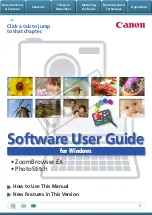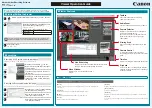
Rapid Spanning Tree Protocol
ExtremeWare 7.2e Installation and User Guide
205
Configuring Link Types.
By default, all ports are broadcast links. To configure the ports in an STPD,
use the following command:
configure stpd <spanning tree name> ports link-type [auto | edge | broadcast |
point-to-point] <portlist>
•
auto
—Configures the ports as auto links. If the link is in full duplex mode, or if link aggregation is
enabled on the port, an auto link behaves like a point-to-point link.
•
edge
—Configures the ports as edge ports.
•
point-to-point
—Configures the ports for an RSTP environment.
To display detailed information about the ports in an STPD, use the following command:
show stpd <spanning tree name> ports <portlist> {detail}
RSTP Timers
For RSTP to rapidly recover network connectivity, RSTP requires timer expiration. RSTP derives many
of the timer values from the existing configured STP timers to meet its rapid recovery requirements
rather than relying on additional timer configurations. Table 38 describes the user configurable timers,
and Table 39 describes the timers that are derived from other timers and not user configurable.
Table 38: User configurable timers
Timer
Description
Hello
The root bridge uses the hello timer to send out configuration BPDUs through all of
its forwarding ports at a pre-determined, regular time interval. The default value is 2
seconds. The range is 1 to 10 seconds.
Forward delay
A port moving from the blocking state to the forwarding state uses the forward delay
timer to transition through the listening and learning states. In RSTP, this timer
complements the rapid configuration behavior. If none of the rapid rules are in effect,
the port uses legacy STP rules to move to the forwarding state. The default is 15
seconds. The range is 4 to 30 seconds.
Table 39: Derived timers
Timer
Description
TCN
The root port uses the TCN timer when it detects a change in the network topology.
The TCN timer stops when the topology change timer expires or upon receipt of a
topology change acknowledgement. The default value is the same as the value for
the bridge hello timer.
Topology Change
The topology change timer determines the total time it takes the forwarding ports to
send configuration BPDUs. The default value for the topology change timer depends
upon the mode of the port.
•
1d mode—The sum of the forward delay timer (default value is 15 seconds;
range of 4 to 30 seconds) and the max age timer (default value is 20 seconds;
range of 6 to 40 seconds).
•
1w mode—Double the hello timer (default value is 4 seconds)
Message age
A port uses the message age timer to time out receiving BPDUs. When a port
receives a superior or equal BPDU, the timer restarts. When the timer expires, the
port becomes a designated port and a configuration update occurs. If the bridge
operates in 1w mode and receives an inferior BPDU, the timer expires early. The
default value is the same as the STPD bridge max age parameter.
Summary of Contents for ExtremeWare 7.2e
Page 14: ...14 ExtremeWare 7 2 0 Software User Guide Contents...
Page 18: ...18 ExtremeWare 7 2e Installation and User Guide Preface...
Page 80: ...80 ExtremeWare 7 2e Installation and User Guide Accessing the Switch...
Page 102: ...102 ExtremeWare 7 2e Installation and User Guide Virtual LANs VLANs...
Page 108: ...108 ExtremeWare 7 2e Installation and User Guide Forwarding Database FDB...
Page 180: ...180 ExtremeWare 7 2e Installation and User Guide Security...
Page 194: ...194 ExtremeWare 7 2e Installation and User Guide Ethernet Automatic Protection Switching...
Page 218: ...218 ExtremeWare 7 2e Installation and User Guide Spanning Tree Protocol STP...
Page 248: ...248 ExtremeWare 7 2e Installation and User Guide Interior Gateway Protocols...
Page 256: ...256 ExtremeWare 7 2e Installation and User Guide IP Multicast Routing...
Page 308: ...308 ExtremeWare 7 2e Installation and User Guide Using ExtremeWare Vista on the Summit 400...
Page 316: ...316 ExtremeWare 7 2e Installation and User Guide Technical Specifications...
Page 324: ...324 ExtremeWare 7 2e Installation and User Guide Software Upgrade and Boot Options...
















































